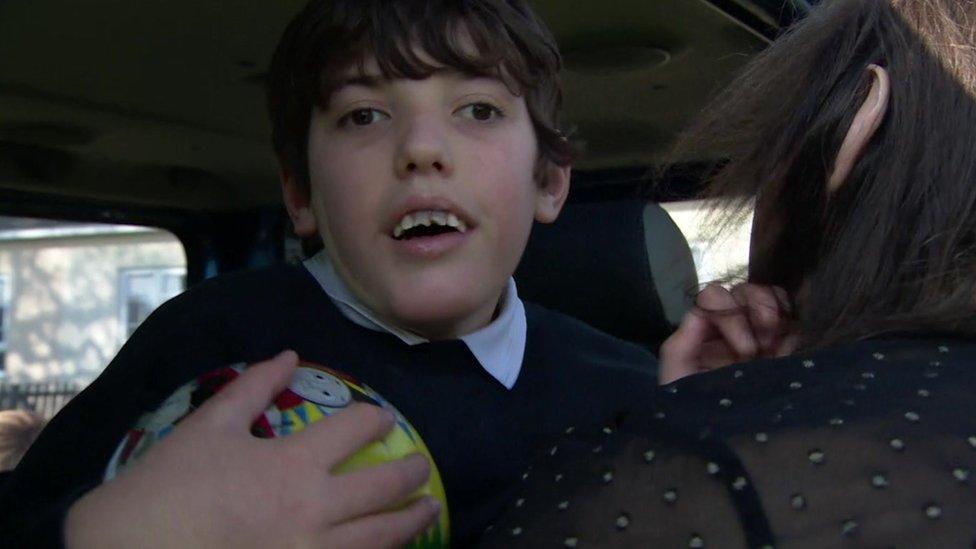Hungary state institution to close over shocking conditions report
- Published
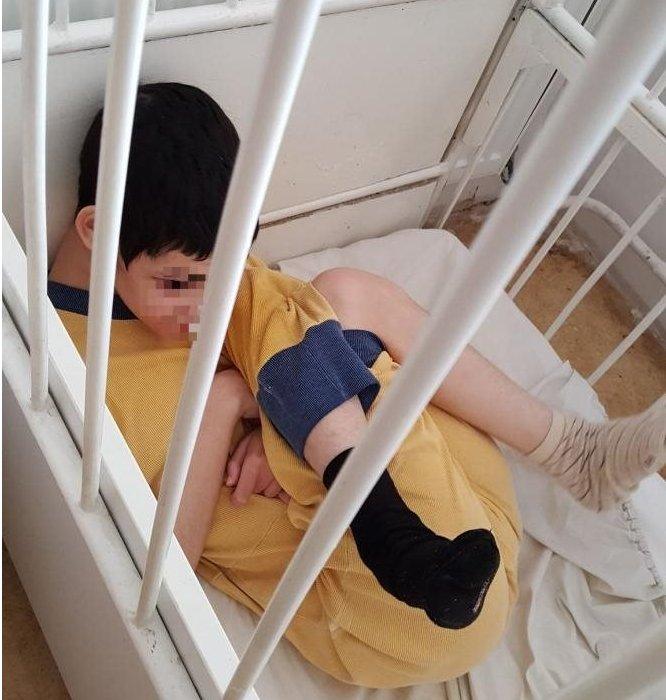
A woman in her 20s, kept in a cage-like bed at Tophaz Special Home
One of Hungary's largest state-run institutions for the disabled is to be closed following a shock report by a human rights group.
The Mental Disabilities Advocacy Centre (MDAC) revealed that the residents of Tophaz Special Home were being kept in horrendous conditions.
The 220-bed facility was supposed to care for adults and children.
Instead, they were found to be malnourished, injured and kept in rooms with excrement on the walls.
In the wake of the report, Hungary's Ministry for Human Resources said it would close the home, about 30km (19 miles) north of the capital Budapest.
But the report's authors fear that Tophaz is just the tip of the iceberg.
'Gnawing the furniture'
At least 20,000 patients live in similar, closed establishments across Hungary.
"We saw very poor physical conditions on many individuals, including scars and open wounds," said Steven Allen, campaigns director of MDAC, a group based in the UK and Hungary.
"Of particular concern for us is that we saw a number of residents who we believe to be seriously malnourished.
"The issue is not the carers, the issue is public policy, which invests in these institutions as opposed to helping people live in their own homes."
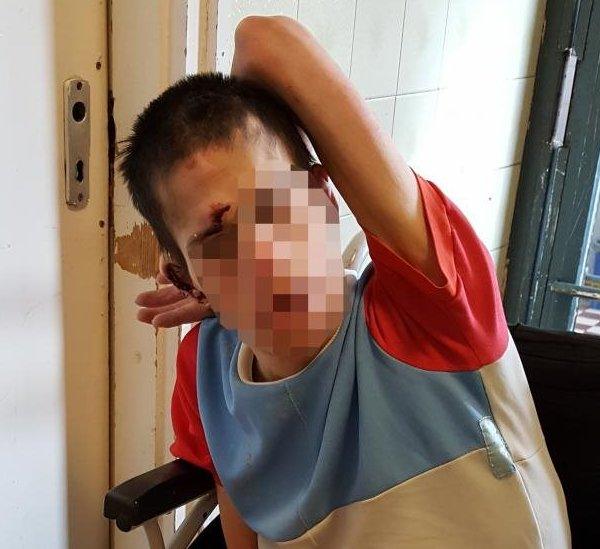
A teenager with Down's syndrome, with a clear open cut on his forehead and a black substance in his ear
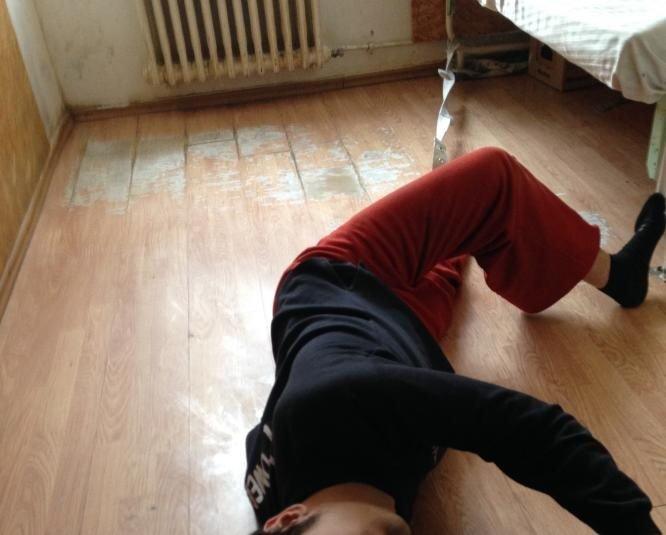
This young man was tied to his metal bed by his ankle
In several visits to Tophaz this year, MDAC documented informal restraints made from items of clothing, and only two staff on locked wards looking after 40 patients with multiple mental and physical disabilities.
According to the report, a number of people showed signs of institutionalisation - rocking back and forth, grinding their teeth and gnawing on furniture.
The charity is not the only one to witness the shock conditions at Tophaz. The Office of the Commissioner for Equal Rights made similar findings when it conducted an investigation at the institution in January.
Beata Borza told the BBC: "Tophaz is an extreme case. Of course, it would be great to close down these institutions immediately, but where would we put all the people who live there?
"In the long term, it is unacceptable. But change to smaller units, in the community, takes a lot of time."
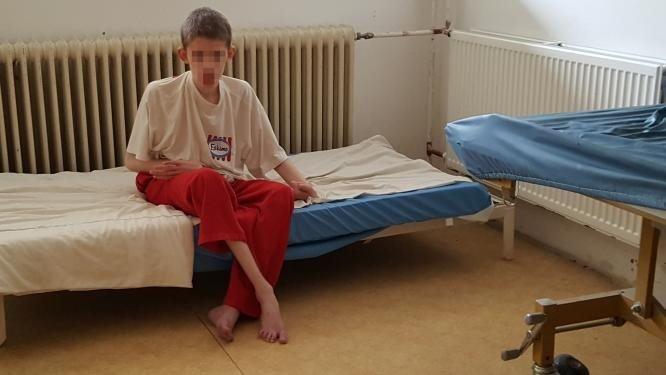
A young boy, apparently showing signs of malnourishment, sits on his bed
In 2011, the Fidesz government drew up plans to close all state-run homes by 2041. Six, with 660 patients, were closed in 2016. Another 38 homes will close in 2018, returning 2,500 patients to the community. By 2023, a third wave of closures will release around 7,500 more patients.
As a result of the MDAC report, the Ministry for Human Resources has said it will speed up the closures - starting with Tophaz.
In a statement released on Wednesday, it also announced it was sacking Tophaz's director and carrying out an immediate investigation.
But the human rights group has said this is not enough, they are asking for a meeting with Minister Zoltan Balog to discuss urgent medical treatment and compensation for the Tophaz patients.
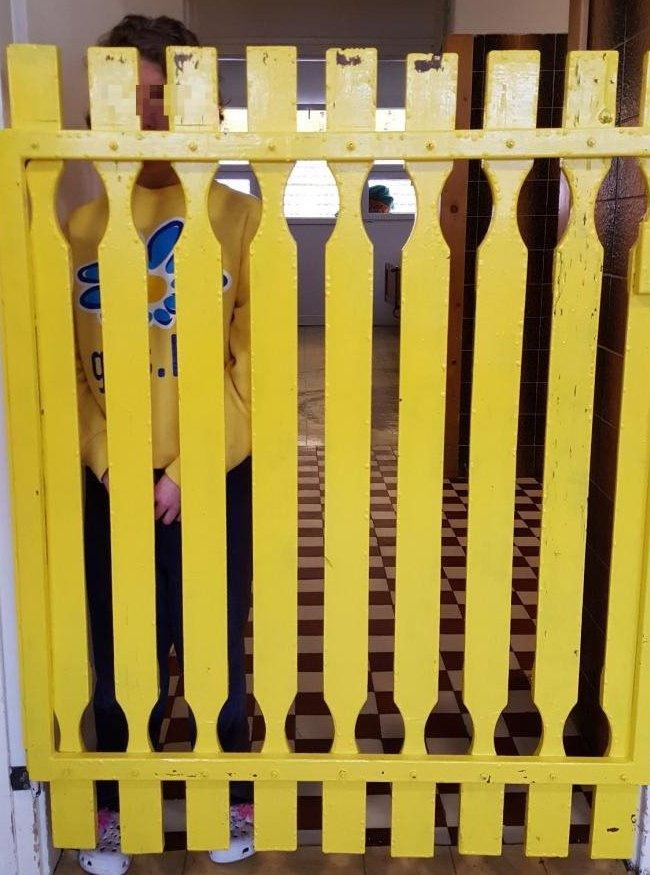
A young woman looking out from behind a fence in Tophaz
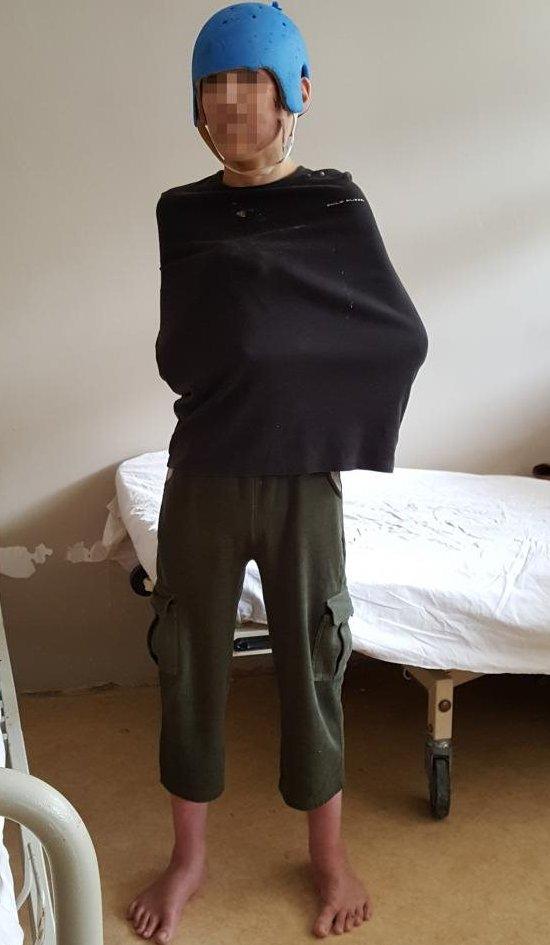
This man shows signs of muscular atrophy and contracture
Karoly Czibere, Hungary's state secretary for social inclusion, had earlier acknowledged there is a problem in some state institutions, but said his government is already addressing it.
"There are some institutions which have a very bad location, the infrastructure is very bad, and the conditions of life are very bad," he told the BBC. "It is a top government priority to move patients into community-based care."
Meanwhile, Mr Czibere denied MDAC claims that the government refuses to allow independent monitoring, as well as denying allegations that EU Structural Funds are channelled into improving conditions at homes like Tophaz, rather than into preparing patients and staff for community and family-based care.
Large orphanages and state-run institutions for people with disabilities are a legacy of the Communist era in eastern Europe.
But nearly 30 years after its fall, the public are not used to seeing them in the street, and are often intolerant.
Staff at Tophaz earn only €400 ($436/£338) a month. There is a major labour shortage, as Hungarians and other east Europeans leave to work in homes for the elderly in northern Europe, including Britain and Germany.
- Published7 November 2016
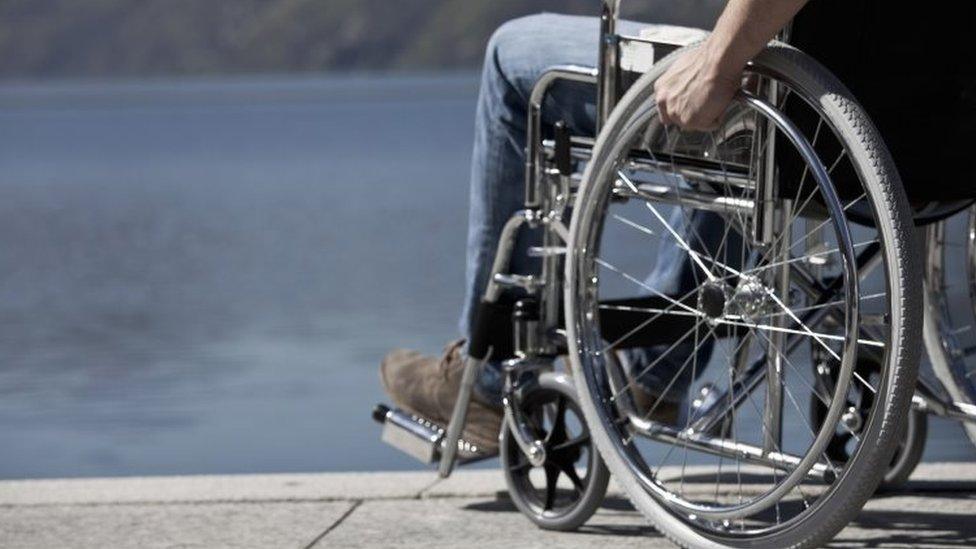
- Published17 June 2016

- Published3 April 2017
